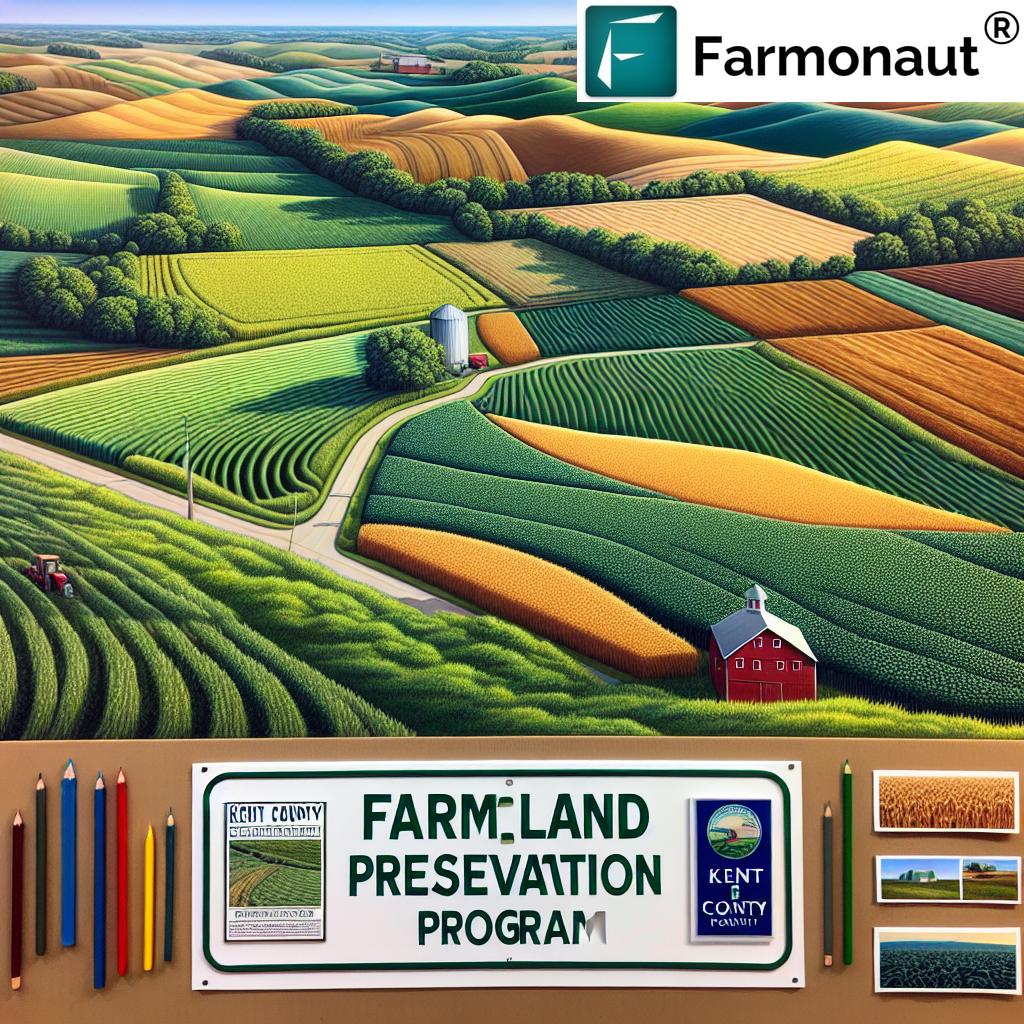Table of Contents
🌾 Introduction to JEEVN AI: A Game-Changer for Nebraska Sorghum Farmers
In the heartland of America, Nebraska’s sorghum farmers face unique challenges in maximizing their crop yields while maintaining sustainable practices. Enter JEEVN AI, an innovative solution by Farmonaut Technologies that’s set to transform the landscape of sorghum farming in the Cornhusker State. This cutting-edge tool harnesses the power of artificial intelligence and satellite technology to provide Nebraska farmers with precise, actionable insights tailored to their specific needs.
With Nebraska being the 6th largest sorghum-producing state in the US, contributing significantly to the nation’s agricultural output, the introduction of JEEVN AI comes at a crucial time. According to the
USDA National Agricultural Statistics Service, Nebraska produced 13.3 million bushels of sorghum in 2020. JEEVN AI aims to boost these numbers by eliminating guesswork and bringing science and technology to the forefront of agricultural practices.
🛰️ How JEEVN AI Works: Satellite Intelligence Meets Local Farm Data
JEEVN AI’s sophisticated system integrates multiple data sources to provide comprehensive farm advisory services. Here’s a breakdown of its core components:
- Satellite intelligence generated by Farmonaut
- Local weather data specific to Nebraska
- Individual farm information
- Various other agricultural parameters
By combining these data points, JEEVN AI delivers precise recommendations tailored to each Nebraska sorghum farm’s unique conditions. It’s akin to having a team of agricultural experts at your fingertips, guiding you through every step of the farming process.
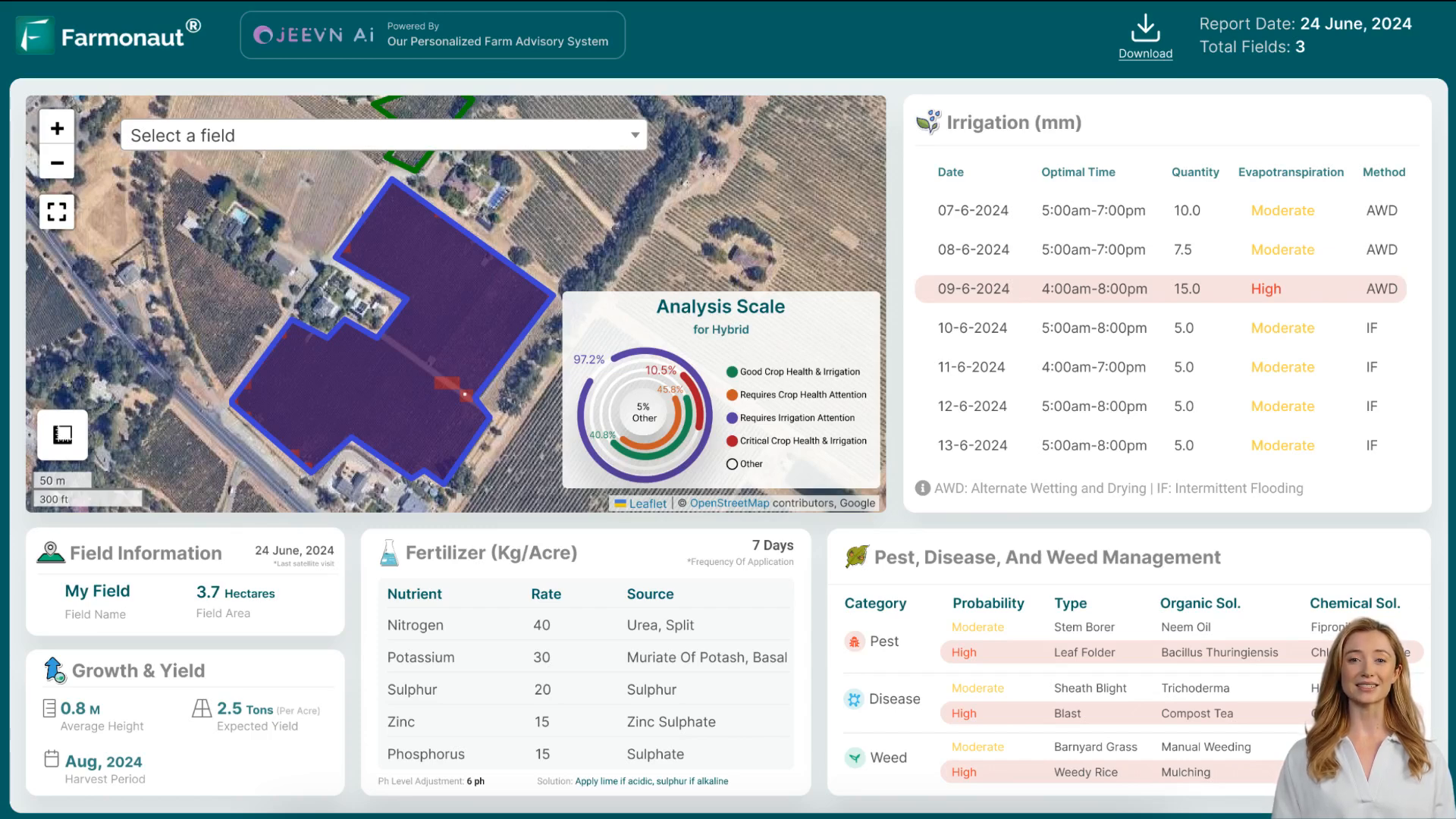
🧪 Soil Nutrient Analysis: Optimizing Sorghum Growth in Nebraska’s Varied Soil Types
Nebraska’s soil types vary significantly across the state, from the sandy soils of the Sandhills to the rich loess soils of the eastern regions. JEEVN AI provides detailed insights into the nutrient levels of your specific soil type, analyzing key elements crucial for sorghum growth:
- Nitrogen
- Phosphorus
- Potassium
- Zinc
- Sulfur
This analysis helps Nebraska farmers understand what their soil lacks and recommends appropriate fertilization strategies. For instance, if nitrogen levels are low in a particular field, JEEVN AI will suggest the optimal amount of nitrogen fertilizer to apply, ensuring sorghum crops receive the nutrients they need for robust growth.
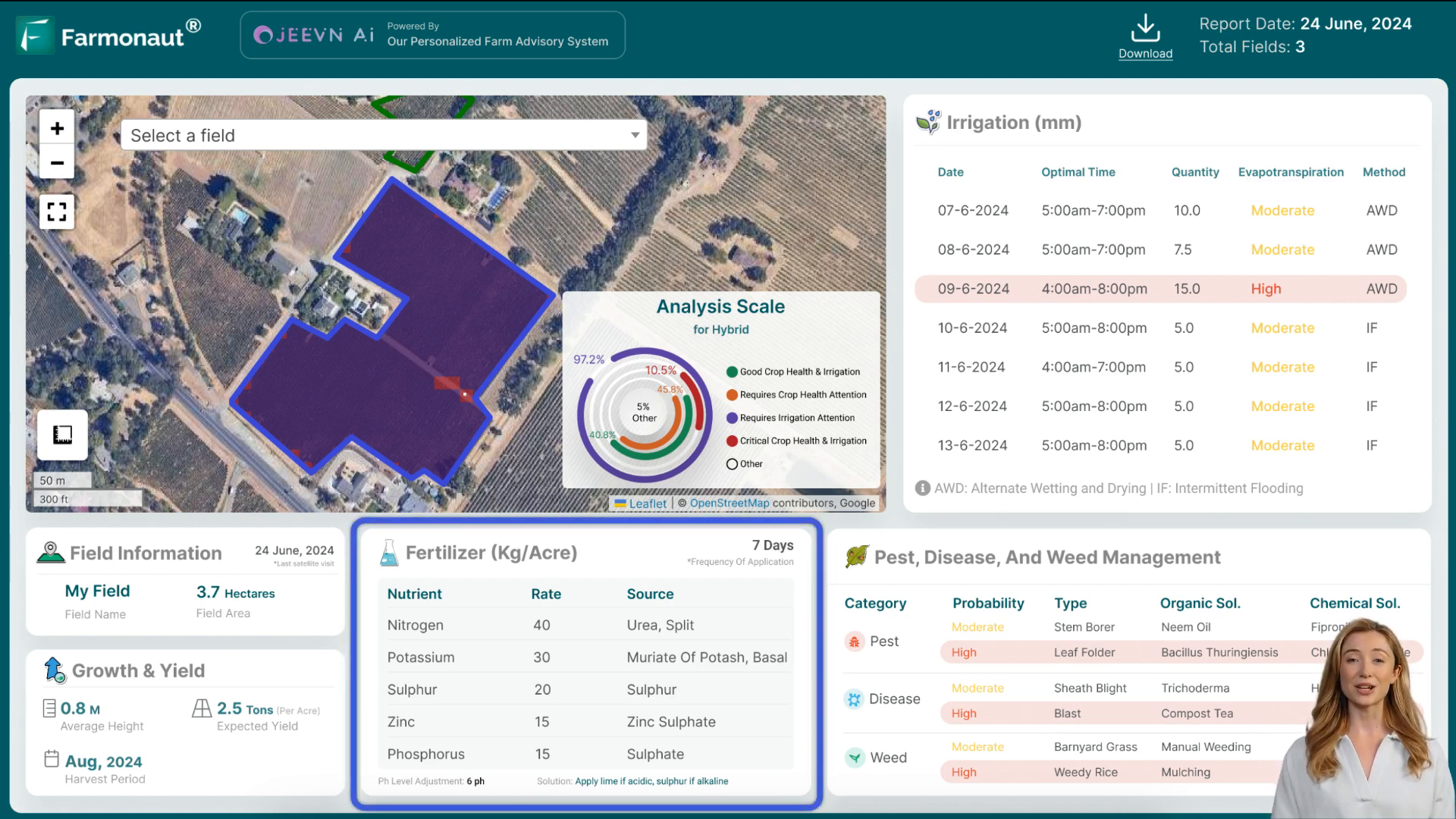
📊 Soil pH Management: Crucial for Nebraska’s Sorghum Success
Soil pH plays a significant role in nutrient availability and overall soil health, which is particularly important for sorghum cultivation in Nebraska. JEEVN AI continuously monitors soil pH levels and offers corrective measures when needed. By maintaining the soil pH within the optimal range for sorghum (typically between 6.0 and 7.0), Nebraska farmers can enhance nutrient uptake by plants, leading to better crop performance.
If the soil pH falls outside the optimal range for sorghum, JEEVN AI will suggest corrective measures such as:
- Lime application to raise pH in acidic soils
- Sulfur application to lower pH in alkaline soils
These recommendations are tailored to the specific soil conditions of each Nebraska farm, ensuring precise and effective pH management.
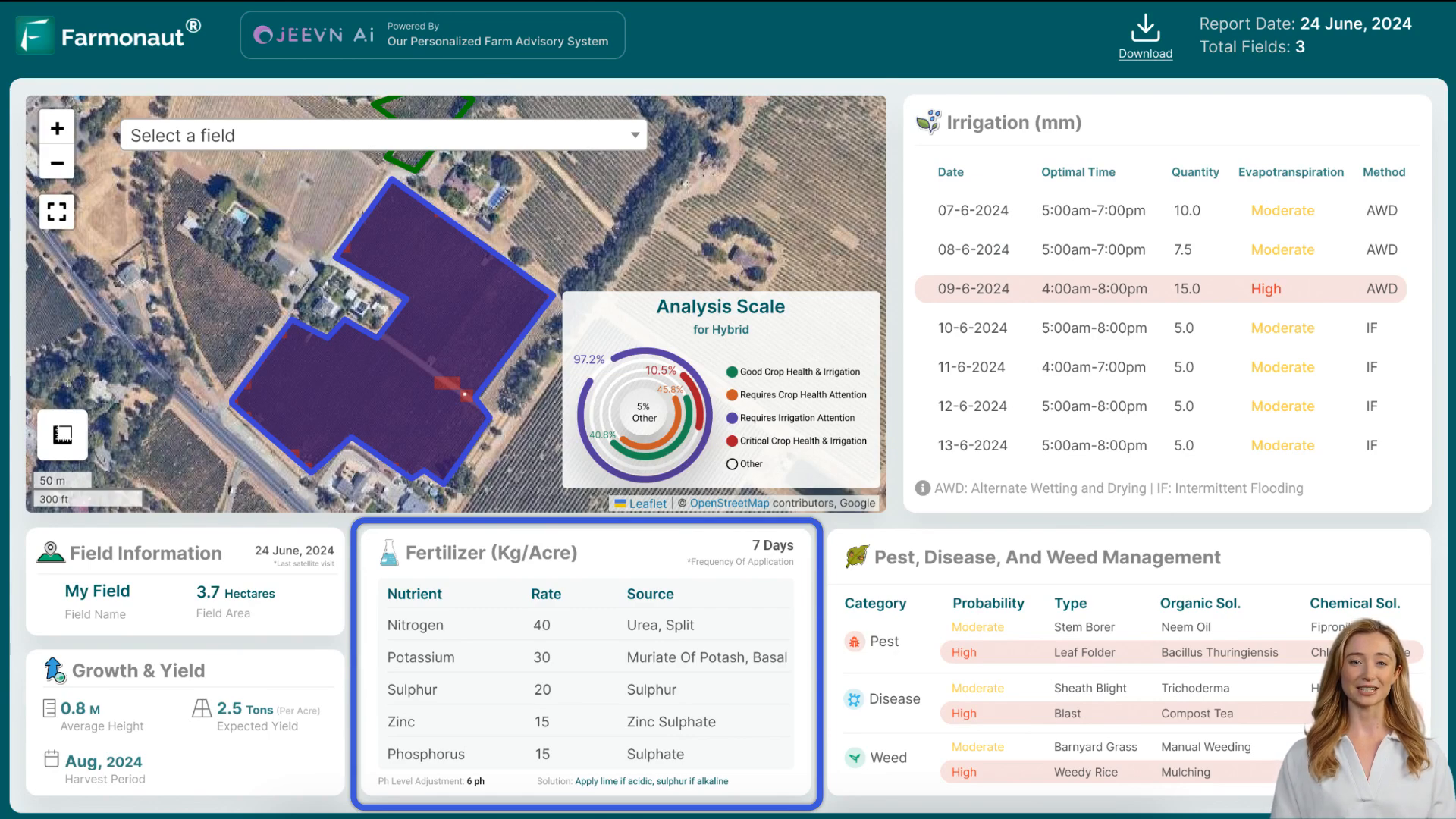
🐛 Early Pest and Disease Detection: Protecting Nebraska’s Sorghum Crops
One of JEEVN AI’s most impressive features is its ability to identify potential pests and diseases affecting sorghum crops in Nebraska. By analyzing satellite images, weather patterns, and local data, the tool can predict pest outbreaks and suggest preventive measures. This early detection and intervention capability is key to minimizing damage and reducing reliance on chemical pesticides.
For example, if conditions become favorable for sorghum midge or greenbugs, two common sorghum pests in Nebraska, JEEVN AI will alert farmers and provide preventive measures to protect their crops. This proactive approach allows for targeted interventions, reducing the need for broad-spectrum chemical pesticides. The result is not only lower costs but also more environmentally friendly farming practices, aligning with Nebraska’s commitment to sustainable agriculture.
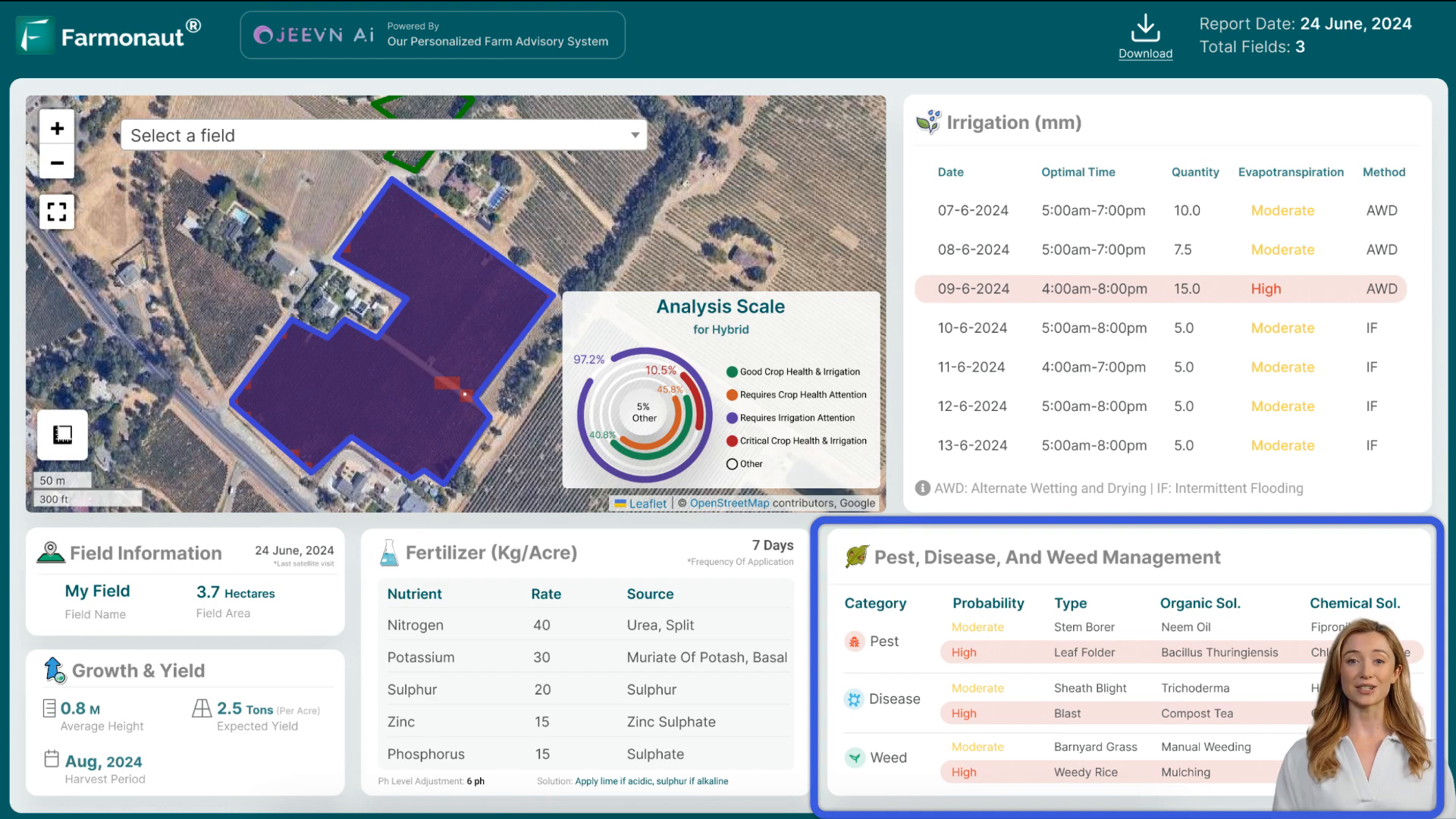
💧 Efficient Water Usage: Critical for Nebraska’s Semi-Arid Climate
Efficient water usage is essential for sustainable sorghum farming in Nebraska, especially given the state’s semi-arid climate in many regions. JEEVN AI uses a combination of weather data, soil moisture levels, and crop requirements to determine the optimal irrigation schedule for sorghum fields. This is particularly valuable for Nebraska farmers, as the state often faces water scarcity issues.
By providing precise recommendations on when and how much to water, JEEVN AI helps Nebraska sorghum farmers:
- Conserve water resources
- Prevent over or under irrigation
- Ensure crops receive the right amount of water
- Promote healthy growth and water conservation
According to the
Nebraska Agricultural Water Management Network, proper irrigation management can lead to water savings of 1-3 inches per acre. JEEVN AI’s precision irrigation advice can help achieve these savings while maintaining optimal crop health.
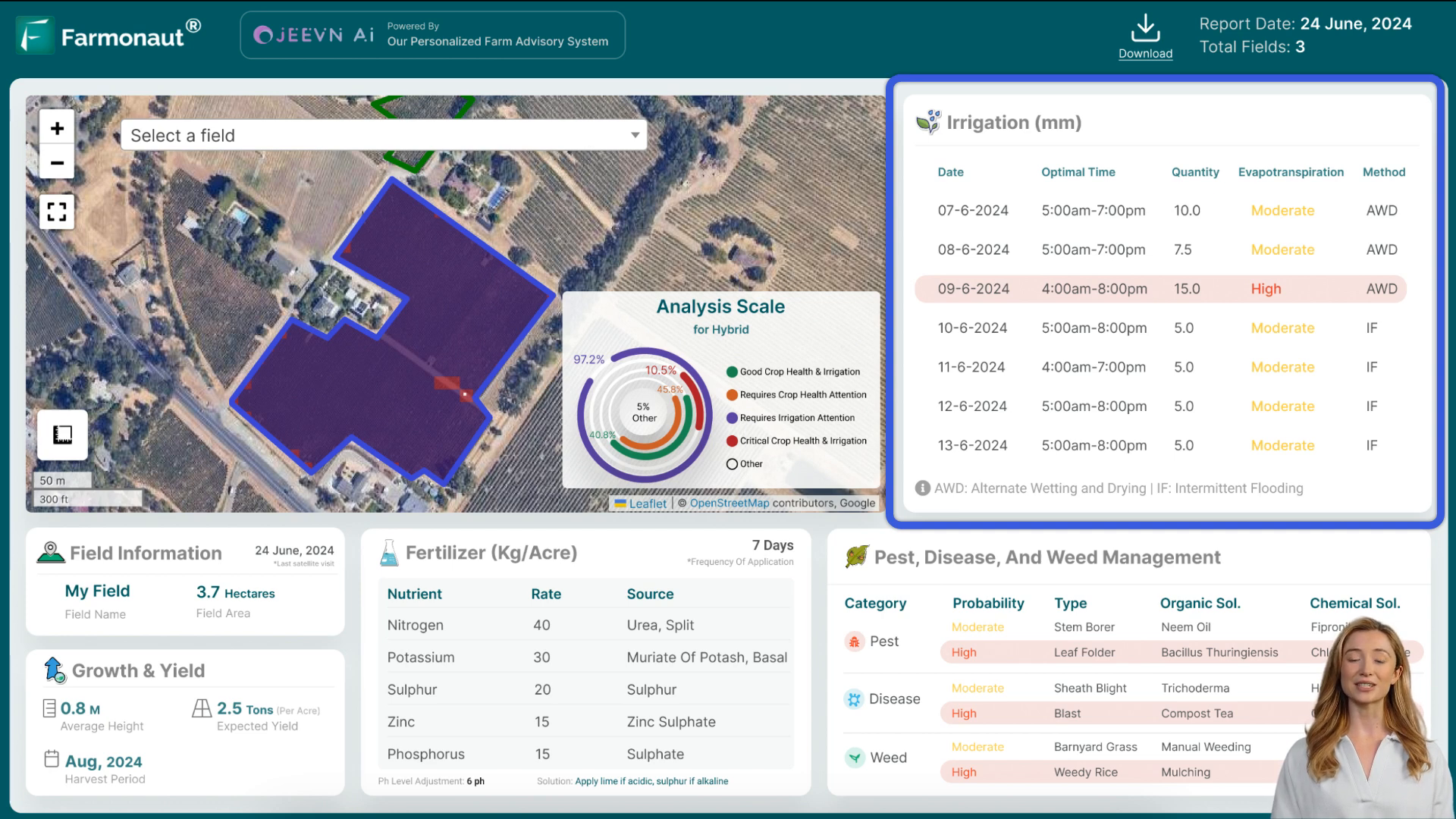
📈 Crop Growth and Yield Predictions: Maximizing Nebraska’s Sorghum Production
The impact of JEEVN AI on sorghum crop growth and yield in Nebraska is profound. The tool ensures that the soil has the right balance of nutrients and maintains optimal pH, while also providing critical predictions on the growth and yield of sorghum crops. For Nebraska farmers, this means access to valuable forecasts such as:
- Expected height of sorghum crops
- Anticipated yield per acre
- Projected time until harvest
By leveraging these predictions, Nebraska sorghum farmers can make informed decisions to enhance their productivity and plan their activities more efficiently. Regular monitoring and timely interventions facilitated by JEEVN AI can result in healthier sorghum crops with fewer instances of stress and disease, leading to higher quality produce and increased market value.
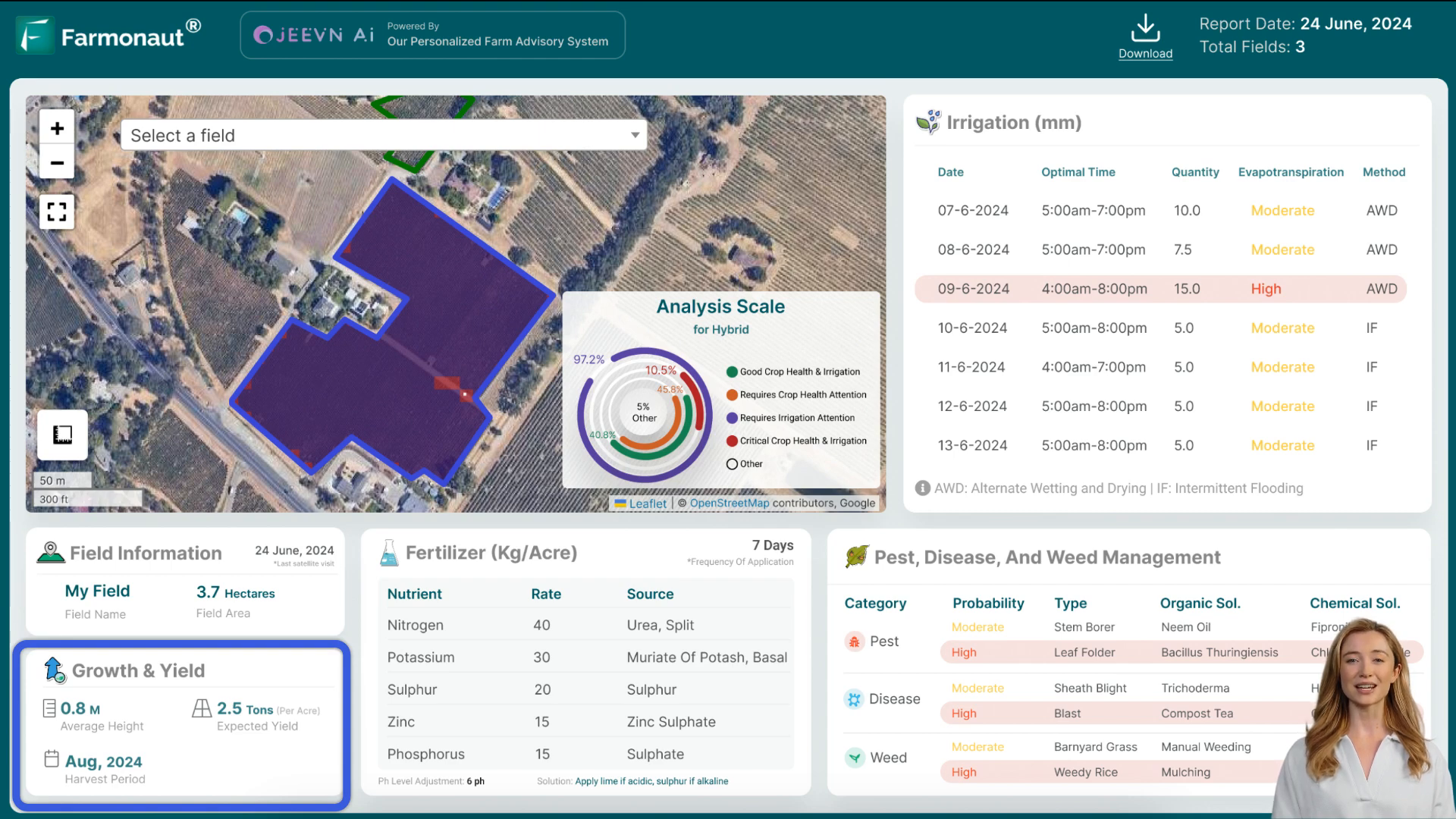
🚀 The Future of Sorghum Farming in Nebraska with JEEVN AI
JEEVN AI is more than just a farm advisory tool; it’s a game-changer for the agricultural industry in Nebraska. By leveraging the power of artificial intelligence and satellite technology, JEEVN AI provides Nebraska sorghum farmers with the insights and recommendations they need to optimize their farming practices and achieve greater success.
As Nebraska continues to be a significant contributor to the nation’s sorghum production, tools like JEEVN AI will play a crucial role in maintaining and enhancing this status. The Nebraska Department of Agriculture reports that sorghum contributes significantly to the state’s agricultural economy, and with JEEVN AI, there’s potential for even greater economic impact.

❓ Frequently Asked Questions about JEEVN AI for Nebraska Sorghum Farmers
Q: How does JEEVN AI account for Nebraska’s unique climate conditions?
A: JEEVN AI integrates local weather data and historical climate patterns specific to Nebraska, ensuring that its recommendations are tailored to the state’s unique conditions, including its semi-arid regions and variable precipitation patterns.
Q: Can JEEVN AI help with drought management, a common concern for Nebraska farmers?
A: Yes, JEEVN AI’s precise irrigation recommendations and soil moisture monitoring capabilities are particularly useful for drought management, helping Nebraska farmers optimize water usage during dry periods.
Q: How does JEEVN AI compare to traditional farm advisory services in Nebraska?
A: While traditional services rely heavily on manual observations and general guidelines, JEEVN AI provides real-time, data-driven insights specific to each farm, offering a level of precision and timeliness that traditional methods can’t match.
Q: Is JEEVN AI suitable for both small and large sorghum farms in Nebraska?
A: Yes, JEEVN AI is scalable and can be beneficial for sorghum farms of all sizes in Nebraska, from small family-owned operations to large commercial farms.
Q: How often does JEEVN AI update its recommendations?
A: JEEVN AI provides continuous updates based on the latest satellite imagery, weather data, and farm information, ensuring that Nebraska farmers always have access to the most current advice.
JEEVN AI Benefits for Nebraska Sorghum Farmers
| Feature |
Benefit |
| Soil Nutrient Analysis |
Optimized fertilization for Nebraska’s varied soil types |
| pH Management |
Improved nutrient uptake in sorghum crops |
| Pest Prediction |
Early intervention against common Nebraska sorghum pests |
| Irrigation Scheduling |
Water conservation in semi-arid Nebraska regions |
| Yield Prediction |
Better harvest planning and market preparation |
As Nebraska sorghum farmers look to the future, embracing technologies like JEEVN AI will be crucial for maintaining competitiveness and sustainability in an ever-changing agricultural landscape. By providing precise, data-driven insights, JEEVN AI is poised to help Nebraska maintain its position as a leading sorghum producer while promoting environmentally friendly and efficient farming practices.





















